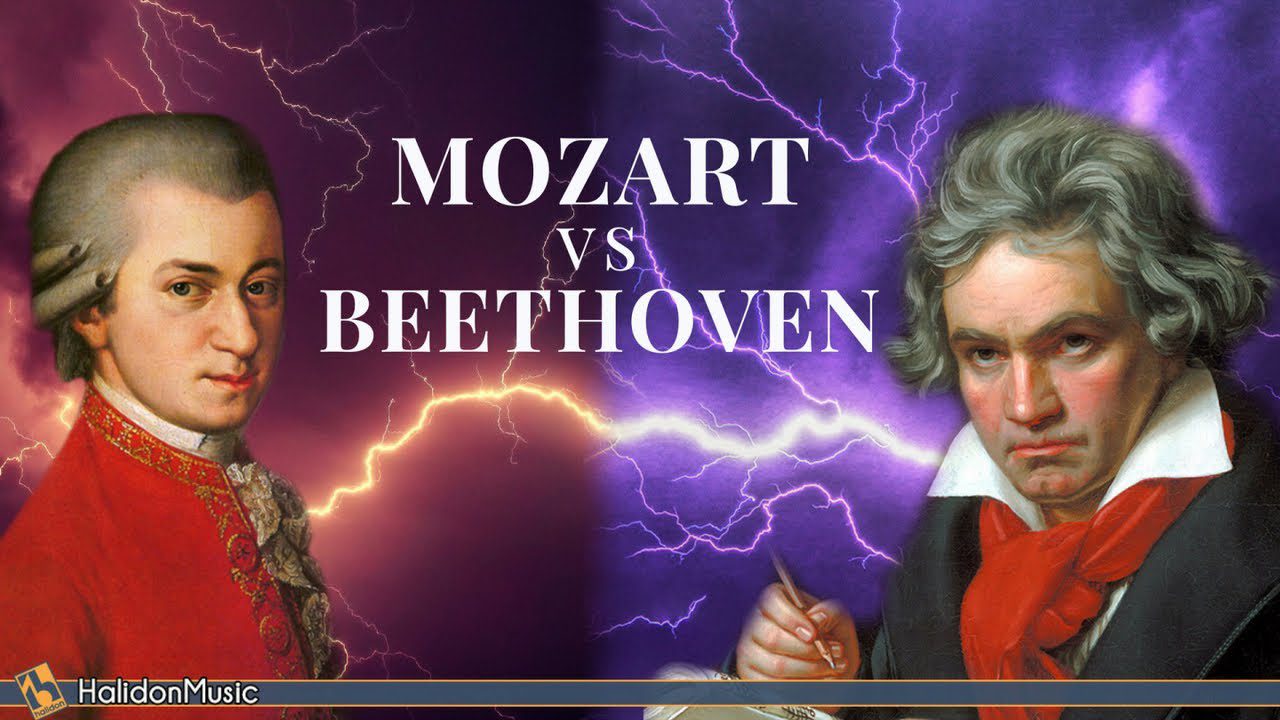Ludwig van Beethoven and Wolfgang Amadeus Mozart were two highly talented composers that helped shape the course of music history. Beethoven, known for his emotionally charged symphonies and sonatas, is credited with helping to usher in the Romantic era of music. He also had a significant impact on piano music with his use of dynamics. Mozart, on the other hand, is known for his intricate operas and chamber music. He helped push the operatic form in new directions and his reputation as a child prodigy continues to inspire young musicians. Both composers left a lasting impact on the world of music and continue to influence musicians today.
Classical Composers: Beethoven vs. Mozart
Classical music has been around for centuries, and some of the most famous composers of all time have helped shape the genre into what it is today. Two of the most well-known composers are Ludwig van Beethoven and Wolfgang Amadeus Mozart. Both of these men were incredibly talented and have left a lasting impact on the musical world.
Background Information
Beethoven was born in Bonn, Germany in 1770. He was a pianist and composer who is considered one of the most prominent figures in the transition from the Classical to the Romantic era in music. Mozart, on the other hand, was born in Salzburg, Austria in 1756. He began composing at a young age and is widely regarded as one of the greatest composers in history.
Style and Genres
One of the key differences between Beethoven and Mozart is the styles and genres of music they composed. Beethoven is known for his symphonies and sonatas, with his music often featuring dramatic and emotional themes. Mozart, on the other hand, is known for his operas and chamber music, which tend to be more lighthearted and playful.
Symphonies and Sonatas
Beethoven’s symphonies are some of the most iconic pieces of music ever written. His Symphony No. 5 is one of the most recognizable pieces in all of classical music, with its famous four-note motif. Beethoven’s sonatas, particularly his piano sonatas, are also highly regarded. They often feature complex and emotional themes, and are considered some of the most challenging pieces of music for pianists to perform.
Operas and Chamber Music
Mozart is known for his operas, which include classics like The Marriage of Figaro and Don Giovanni. His operas are known for their intricate melodies and detailed orchestration. Mozart also composed a significant amount of chamber music, which includes pieces for small groups of instruments. His string quartets are particularly famous and are still performed today.
Influence on Music
Both Beethoven and Mozart had a significant impact on the world of music, and their contributions are still felt today. Beethoven, in particular, is often credited with helping to usher in the Romantic era of music with his emotionally charged compositions. Mozart, on the other hand, helped pioneer the operatic form and is considered one of the greatest composers of all time.
Beethoven’s Influence
Beethoven’s impact on music cannot be overstated. His use of dynamics, particularly in his piano sonatas, helped pave the way for Romantic composers who sought to create more emotionally charged music. His Ninth Symphony, which features a choral finale, is considered one of the most significant compositions in music history.
Mozart’s Influence
Mozart, too, had a lasting impact on music. His operas helped push the art form in new directions, and his chamber music is still revered. Mozart’s reputation as a child prodigy also helped inspire generations of young musicians who sought to follow in his footsteps.
Conclusion
Beethoven and Mozart were both incredibly talented composers who helped shape the course of music history. While they had different styles and composed different types of music, both men left their mark on the world of music. Their legacies continue to inspire and influence musicians and music lovers alike, and their music is still beloved and widely performed to this day.
